SCIENCEIntent – What does our Curriculum intend to do?
At North Tawton, we recognise the importance of a high-quality Science education. As one of the core subjects taught in Primary Schools, we give the teaching and learning of Science the prominence it requires teaching the foundations for understanding the world through the disciplines of biology, chemistry and physics. By building a key foundation of knowledge of concepts, methods, processes and uses of science, it is our belief and aim that pupils should develop a natural excitement and curiosity about natural phenomena. Children will be encouraged to understand how science can be used to explain what is occurring, predict how things will behave, and analyse causes through the teaching of the statutory content of the National Curriculum and EYFS with an aim to promote understanding and experience of science careers and pathways. Implementation – How do we implement this? Developing Understanding and Knowledge Early Year Foundation Stage Curriculum In the EYFS Science is learnt through ‘Understanding the World’. This is planned within the play-based curriculum led by the children themselves and by teachers in adult led learning. STEM activities and resources are provided weekly to promote learning within the classroom provision to be accessed by the children during their independent learning. Children also take part in weekly Forest School sessions to promote their understanding and curiosity of the world around them. Key Stage One and Two At North Tawton we meet the objectives of the National Curriculum through our own Base Curriculum developed collaboratively by Science Leaders within The Dartmoor Academy Trust. As specified by the National Curriculum the Base Curriculum aims to: Develop scientific knowledge and conceptual understanding through the specific disciplines of biology, chemistry and physics. Develop understanding of the nature, processes and methods of science through different types of science enquiries that help them to answer scientific questions about the world around them. Ensure children are equipped with the scientific knowledge required to understand the uses and implications of science, today and for the future. The Base Curriculum The Base Curriculum provides a strong foundation for teaching progression from one year to the next within set topic areas. Developing Scientific Skills Teaching Through these topics, children develop concepts, methods and processes through five key forms of enquiry as they progress through the year groups. Enquiry is used to gain, experience and consolidate knowledge but also to develop pupils skills in working scientifically to explain what is occurring, predict how things will behave, and analyse causes. Our key forms of enquiry are: Comparative and Fair Testing. Research Observation over Time Pattern Seeking Identifying, grouping and Classifying Building Scientific Vocabulary The use of scientific language is key to progression and understanding. Children are taught to use a wide and increasingly scientific vocabulary as they progress to describe ideas, objects and phenomena – this is carefully and sequentially planned from year to year. Assessment Each unit’s learning is set out clearly using Knowledge Organisers that cite key learning objectives. Children’s knowledge and understanding of each topic area are assessed both before a unit and summatively at the end of each unit. Formative assessment also takes place through the teaching sequence through quizzes or extended pieces of writing. Promoting Understanding of Science Careers and Pathways The Ogden Trust Partnership Established by Sir Peter Ogden in 1999, the Trust exists to promote the teaching and learning of Physics. North Tawton Community Primary School works as part of the local Ogden Trust project and benefits from working collaboratively with local schools within the MAT, often forging links to other organisations and supporting teacher professional development in an effort to enhance provision for pupils. As part of our Alliance with the Ogden Trust we are able to access specialist resources for enrichment activities and the teaching of Science. The Ogden Trust also promote the understanding of and experiencing of science careers through promotion of science fairs and events within schools. About Us | The Ogden Trust Science Week Every year in March, the children take part in Science week. During this week the school celebrates Science, Technology, Engineering and Maths (STEM) by providing special activities. In the past we have enjoyed:
During this week the school aims to raise the profile of Science in pupil’s lives by introducing them to people working within their own community using science in their everyday jobs. Homepage - British Science Week Enrichment Activities Enrichment activities are provide throughout the school year for both KS1 and KS2 as both part of our curriculum and are also provided in after school clubs such as: Outdoor/Gardening/Eco Club STEM Club Forest Club In the Future! Eco School Mark At North Tawton we are hoping to become an Eco School. We will do this by following a seven-step framework that guides, empowers and motivates pupils to drive change and improve environmental awareness in their school, local community and beyond. After completing the seven step process we hope to apply for Green Flag accreditation, which recognises, rewards and celebrates the environmental achievements of young people. Primary - Eco Schools (eco-schools.org.uk) Impact – What progress do the children make? Children will have gained scientific knowledge and skills in line with the statutory content of the EYFS and National Curriculum for Key stage 1 and 2 by the end of their primary learning at North Tawton community Primary School. Having learnt the foundations of knowledge necessary to study Biology, Physics and Chemistry in their future educational life they will be confident in enquiry and the use of scientific language. Pupils will have met scientists working within their own communities and will have knowledge of possible career aspirations and pathways. |
OUR CURRICULUM |
|
CONTACT
North Tawton Primary School Exeter Street, North Tawton, Devon, EX20 2HB Tel: 01837 82284 Email: [email protected] Media enquiries: [email protected] |
© COPYRIGHT 2020 DARTMOOR MULTI ACADEMY TRUST. ALL RIGHTS RESERVED | Website design by brightblueC and Alex Thomas Design | Privacy notice


